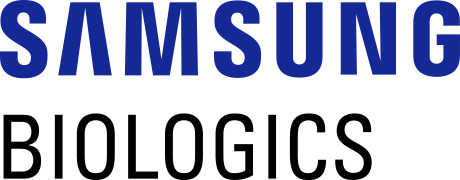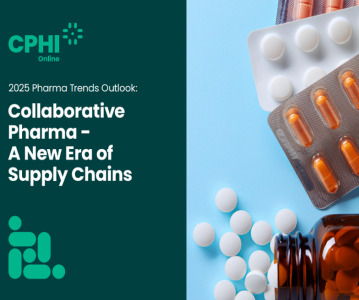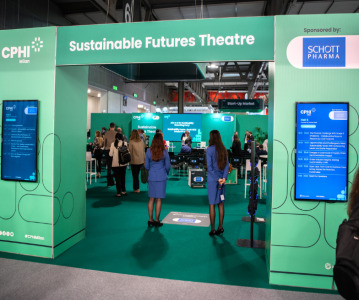Sustainability in pharmaceutical manufacturing: an expert panel discussion

In this written panel discussion experts in manufacturing in the pharmaceutical supply chain comment on the manufacturing landscape, how sustainable practices are being incorporated more readily, the challenges associated with this and the overall advantages.
The panel is made up of Jimin Han, Leader of the ESG Group at Samsung Biologics, and Gav Cook, Sustainability Manager at Recipharm.
Jimin Han leads the ESG Group at Samsung Biologics. He joined Samsung Biologics in 2011 helping strategising the company's ESG initiatives from the get-go. He also helps lead the company to transition to the renewable energy aligned with its business strategy as well as ESG and TCFD reporting/rating.
Gav Cook is the Sustainability Manager at Recipharm, based in King’s Lynn, UK. He has worked in the sustainability field in various roles for 19 years. Prior to working at Recipharm he held similar roles at AstraZeneca and the British Antarctic Survey and also spent some time in sustainability consulting.
What are the most challenging areas in the manufacturing process in terms of energy consumption?
Han: Changes to the overall manufacturing process are imperative to reduce energy consumption. However, the process – and industry itself – is highly regulated and requires validation; as an result, changes to products and manufacturing processes can involve long and complex processes because you have to prove that the change ultimately does not affect the product.
Cook: For medical devices, what could normally be straightforward alterations to operating patterns to improve efficiency are not immediately open to us due to the specification requirements, the complexity, and the time required in altering them. For example, a simple temperature increase on cooling levels in clean rooms requires a lengthy approval process.
Also, it is proving difficult to impress the long-term benefits of additional energy metering throughout the manufacturing process to enable performance analysis, and now of increasing importance, to communicate the energy consumptions of individual product processes.
Which areas in the manufacturing chain produce the most carbon emissions, directly and indirectly according to the 1, 2, and 3 scope emissions?
Han: According to the Sustainable Markets Initiative’s (SMI) “Decarbonising Healthcare Supply Chains” whitepaper, the biopharma industry in which Samsung Biologics operates its business is responsible for 4–5% of global GHG emissions, with most of its carbon footprint coming from supply chain, manufacturing, retail, and logistics. The largest emissions driver in the healthcare sector is the healthcare supply chain, which accounts for more than 50% of its total emissions.
For Samsung Biologics, about 84.7% of our carbon emissions come from the raw materials and capital goods suppliers, while roughly 12.6% comes from our site and indirect emissions (scopes 1 and 2).
Cook: Scopes 1 and 2 emissions are relatively minor in comparison to the scope 3 tally. Although, within these scopes, electrical energy consumption in manufacturing and the fugitive emissions from HFC release during pMDI product lab testing are the highest.
By far our most significant emission is from the manufacture of high grade polymers for use in molding medical devices. For our baseline carbon inventory, over 90% of our emissions came from this.
What methods can be used to reduce carbon emissions in these areas?
Han: Regarding scope 1 and 2 emissions, we recommend these methods: transitioning sites to 100% renewable energy as well as maximising additional sources of renewable electricity (e.g. Power Purchase Agreements and Renewable Energy Certificates); reducing direct and indirect GHG emissions from manufacturing processes by improving energy efficiency; and converting business vehicles into zero-emission vehicles (electric/hydrogen vehicles).
For scope 3 emissions, joint initiatives with suppliers to reduce their carbon emissions through target setting, assessing and disclosing GHG emissions, and sharing annual emissions reduction performance can be used for establishing a carbon neutral ecosystem.
Cook: Due to the volume of product made and the impact of the materials used, the most significant gains to be made in carbon emission reduction will be to switch materials to lower carbon recycled or bio-based sources. Recycled content at present is not available in the grades suitable for medical devices in the quantities we would require. Therefore, exploring the options of switching materials and increasing the use of bio-based polymers is preferred.
In order to tackle the emissions from HFC release during pMDI device testing, the specification for lab testing requirements could be reviewed and the requirements reduced. On a wider level, the industry is working towards alternatives to the high GWP propellants we currently use with a view to significantly phasing them down, in line with evolving legislation. In both cases, collaboration with clients, regulators, suppliers, and the industry at large is required.
How important is it that the pharmaceutical industry is transparent about its impact on the environment to the general public and do companies consider the public perception when road mapping ways to stop climate change?
Han: Our health and the climate are inextricably linked. The climate crisis is one of the most pressing risks to global health. Therefore, healthcare stakeholders must play their part in accelerating the delivery of net zero health systems. Samsung Biologics recognises the severity of climate change and understands our role and responsibility in the global response to mitigate the effects of global warming.
As a result, considering public perception when we establish and disclose our strategy is very important. We want to be transparent not only about our current net zero progress, but also on how we’re delivering sustainable outcomes.
The escalating global climate crisis affects humanity extensively, as well as our clients and patients.
Cook: Although the general public is mostly aware of the direct impact they have, such as from energy and water consumption in the home, raising awareness of the significance of the indirect impact made on their behalf by suppliers will be an important development in averting climate change. However, medical devices, and medicinal products, can be life-saving, particularly in the case of a product such as a salbutamol pMDI, and so it will be important to educate users without scare-mongering, which could lead to unintended consequences in terms of clinical outcomes. Awareness and education on the impacts of consumption on climate change is key, but we must act responsibly as an industry to ensure health outcomes are positively, not negatively, affected.
What are the economic costs behind making these changes and how do pharma companies view these costs? I.e. as a necessary cost or as prohibitive?
Han: In assessing the impact that climate change can have on business, companies must identify both climate change-induced risks and opportunities that can affect not only its sites, but also the entire value chain. Many decarbonisation levers are currently expensive and have low availability in key geographies. Implementing manufacturing efficiency measures and switching to renewable power can, however, be done at low incremental costs in many geographies, and even save costs over time.
Although investing in decarbonisation typically comes at an initial cost, there is also a significant risk to inaction. Companies delaying investment in decarbonisation and relying on buying offsets or paying carbon taxes will ultimately be faced with rising costs with the price of carbon currently forecasted to reach 40–70 euros/tCO2 by 2030.
Samsung Biologics has adopted this mindset in its decision making for its company-wide net zero policy.
We evaluate the economic cost such as investment cost for the technology transition and purchasing renewable energy would be considered as a necessary cost to manage business achievements such as reducing green management cost, securing future growth engines, and managing stakeholder relations.
Cook: The increased costs for reducing the impact of our medicinal products and medical devices can be significant and appear more so when applied to life saving products. The social sustainability aspect of allowing access to medicine by increasing affordability is also paramount in the pharmaceutical industry and so there is a fine balance required.
In many cases, environmental improvements can be made that impact costs – and therefore affordability and access to medicines – positively in the long run so these should be pursued in the first instance.
How can we develop strategies that make becoming more sustainable more cost effective and easier to implement for companies across the board?
Cook: An appreciation for the long-term benefits of improving sustainability performance and the potential consequences of not doing so need to be reinforced in all areas of business, and through the whole supply chain. A switch to a long-term thinking, climate-based economy is required instead of the current short-term, economics based one that is the norm.
How can companies avoid ‘greenwashing’ and make sure they are making a fundamental difference?
Han: At its core, avoiding greenwashing is about putting in the work: setting credible targets and goals and backing up sustainability claims with data. Transparent and honest reporting is also imperative.
Specifically, companies should 1) establish and disclose interim goals aligned with science based targets or other global environmental management standards (including an actionable timeframe), 2) assess and disclose goals including value chains, and 3) disclose actual progress year over year.
Cook: ‘Greenwashing’ can be avoided by diverting resources away from the marketing of sustainability into the implementation of it. By improving performance operationally, and additionally improving our methods of measuring it, we can show stakeholders a more honest and transparent picture of the impacts.
Improved collaboration on carbon accounting methods through supply chains, between industries and competitors, is needed in order to reduce sustainability claims being made in isolation of each other and improve the detection of false claims.
At present, companies seem to be only as sustainable as their marketing allows and not their operational effectiveness. Increased knowledge of true sustainability and collaboration will improve this.
Any further comments?
Han: Representing CDMO businesses in the biopharma industry, Samsung Biologics joined the Sustainable Markets Initiative (SMI) convened by His Majesty King Charles III, and champions the Supply Chains Working Group in order to accelerate the delivery of net-zero, patient-centric health systems and reduce emissions across the supply chains.


Related News
-
News How GLP-1 agonists are reshaping drug delivery innovations
GLP-1 agonist drug products like Ozempic, Wegovy, and Mounjaro have taken the healthcare industry by storm in recent years. Originally conceived as treatment for Type 2 diabetes, the weight-loss effects of these products have taken on unprecedented int... -
News NextPharma Achieves Carbon Neutrality for Scope 1 and 2 Emissions
NextPharma has confirmed that it will achieve carbon neutrality for its Scope 1 and Scope 2 emissions starting January 1, 2025, marking a significant milestone in its sustainability journey. -
News 2025 Pharma Trends Outlook: Collaborative Pharma – A New Era of Supply Chains
A new year, a new Pharma Trends Outlook report! The 2025 Pharma Trends Outlook report examines key changes expected in the pharmaceutical industry for the coming year, particularly in regards to the supply chain. -
News Closing 2024 with Editors' picks of top articles from the past year
Coming to the end of 2024 and it’s certainly been a busy year, for CPHI and for the rest of the pharmaceutical and healthcare industry. Topics of conversation throughout the last 12 months have been varied, touching on the technical, to the polit... -
News SCHOTT Pharma’s sustainable journey with CPHI
Sustainability is of paramount importance in the pharmaceutical industry. See how a recent partnership between CPHI and SCHOTT Pharma has helped to highlight and accelerate their sustainability journey to reach global goals. -
News Day in the Life of a Green Chief Financial Officer
Our latest look into the daily lives of the people behind the pharma community brings us to meet Juan Jose Piedra Galan, Global Financial Planning & Analysis Manager for Galderma, otherwise known as 'The Green CFO'. -
News CPHI Milan 2024 - From the Floor
Milan and CPHI welcome you to 2024 CPHI Milan! As we celebrate the 35th edition of our flagship CPHI show, editors Vivian Xie and Lucy Chard bring you the latest from the show floor, conference sessions, and innovative solutions from all exhibitors, at... -
News CPHI Podcast Series: analysing supplier audits with the PSCI
This episode of the CPHI Podcast Series, hosted by Digital Editor Lucy Chard, goes through the results from the recent audits from the PSCI conducted on suppliers across the pharmaceutical industry, looking into ESG outcomes.
Position your company at the heart of the global Pharma industry with a CPHI Online membership
-
Your products and solutions visible to thousands of visitors within the largest Pharma marketplace
-
Generate high-quality, engaged leads for your business, all year round
-
Promote your business as the industry’s thought-leader by hosting your reports, brochures and videos within your profile
-
Your company’s profile boosted at all participating CPHI events
-
An easy-to-use platform with a detailed dashboard showing your leads and performance







